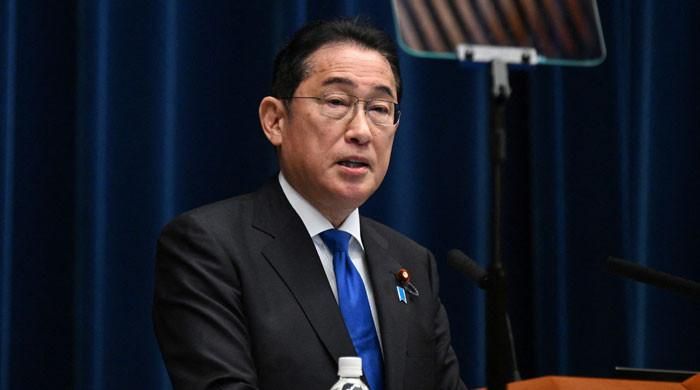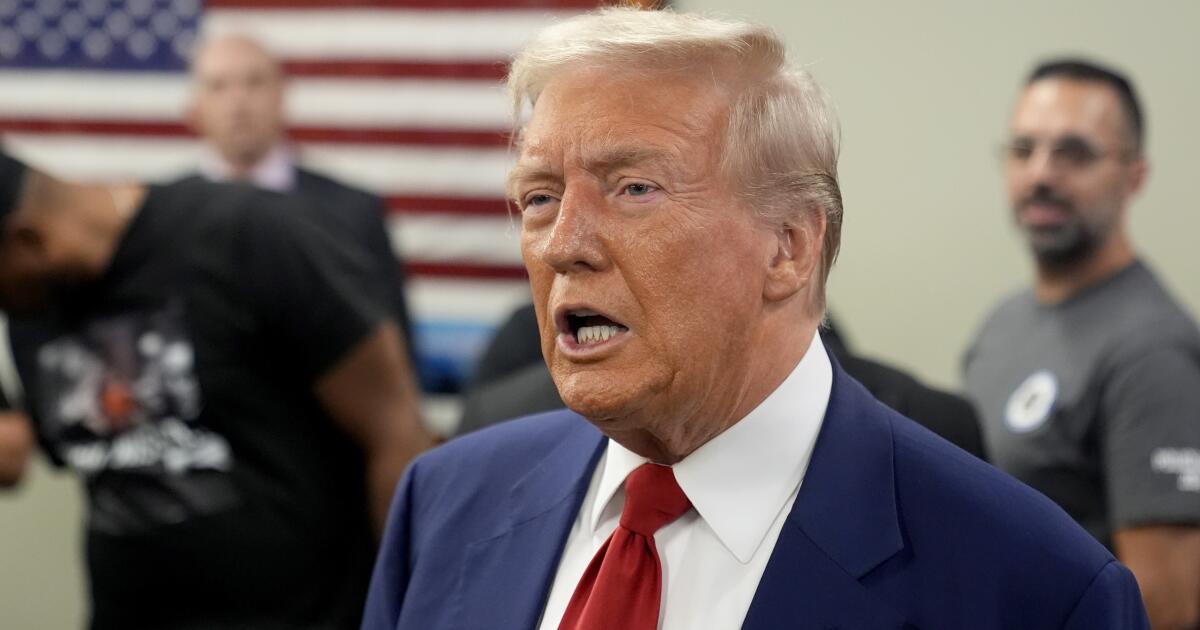TOKYO: Japanese Prime Minister Fumio Kishida has announced he will resign next month in the wake of political scandals and widespread public discontent over rising living costs fueled by inflation, saying politics cannot function without public trust.
“I made this tough decision with the public in mind, with the strong will to push for political reform,” he said at a news conference on Wednesday to reveal his decision not to seek re-election as leader of the ruling Liberal Democratic Party (LDP).
The LDP will hold an election in September to replace him as party president and, by extension, prime minister.
Kishida's popularity ratings fell after taking office in 2021 following revelations about the LDP's ties to the controversial Unification Church.
His popularity took another hit when a secret fund of unregistered political donations made at LDP fundraising events came to light.
He also faced public discontent as wages failed to keep pace with rising living costs as Japan finally shook off years of deflationary pressure.
“A sitting LDP prime minister cannot run for president unless he is assured of victory,” said Koichi Nakano, a political science professor at Sophia University.
“It's like the great yokozuna champions of sumo. You don't just have to win, but you have to do it with elegance.”
His successor as LDP leader will face the task of restoring public confidence in the party and addressing the rising cost of living, increasing geopolitical tensions with China and the possible return of Donald Trump as US president next year.
Monetary policy and military strengthening
During his tenure as Japan's eighth longest-serving leader after the war, Kishida broke with previous economic policy by eschewing trickle-down economics driven by corporate profits to focus his attention on increasing household incomes, including through wage increases and promoting stock ownership.
He led Japan out of the COVID pandemic with massive stimulus spending and also appointed academic Kazuo Ueda as head of the Bank of Japan (BOJ) to guide the country away from the radical monetary stimulus of his predecessor.
In July, the BOJ unexpectedly raised interest rates as inflation took hold, contributing to stock market instability and sending the yen JPY= higher.
Kishida's departure could mean tighter fiscal and monetary conditions, depending on the candidate, said Shoki Omori, chief strategist for the Japan desk at Mizuho Securities in Tokyo.
“In short, risk assets, particularly stocks, will likely be hit the hardest,” he said.
Kishida's tenure was also marked by a changing security environment that prompted Japan to review its traditionally pacifist policy.
He unveiled Japan's biggest military expansion since World War II, pledging to double defense spending to deter neighbor China from pursuing its territorial ambitions in East Asia through military force.
At Washington's urging, Kishida also improved Japan's strained relations with South Korea, allowing both countries and their mutual ally, the United States, to seek deeper security cooperation against the threat of North Korea's missile and nuclear weapons programs.
“Personally, I wish he would continue as prime minister for a little longer,” said Naoya Okamoto, a 22-year-old office worker in Tokyo, the capital.
“Maybe he was stressed (about the low ratings), and with all the circumstances surrounding him, I guess he has no choice but to resign.”
Next leader
Former Defense Minister Shigeru Ishiba has already put himself forward as a possible replacement for Kishida, saying he would like to “do his duty” if he gets enough support, public broadcaster NHK said.
Other names that have emerged as possible contenders include Foreign Minister Yoko Kamikawa, Environment Minister Taro Kono and former Environment Minister Shinjiro Koizumi.
Experts say the PLD will have to choose a new face to break away from scandals if it wants to survive the general elections scheduled for the third quarter of 2025.
“If the LDP chooses its next leader in a way that ignores public criticism of political financing scandals, the party could suffer a crushing defeat,” said political analyst Atsuo Ito.
“The party should choose a young candidate who has no ties to the current administration so that he can present a new PDL.”












